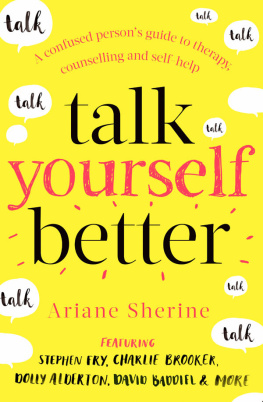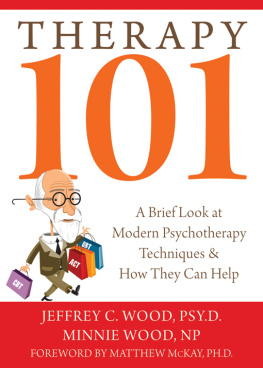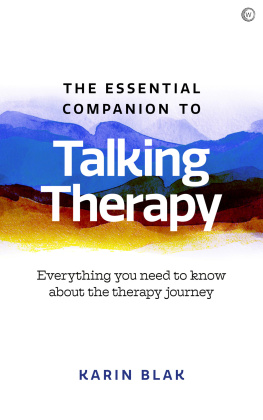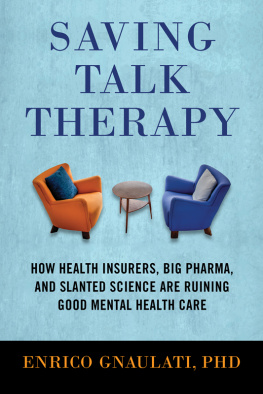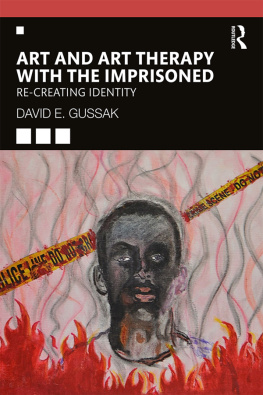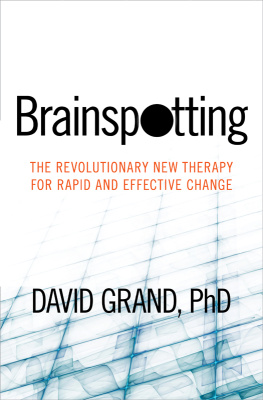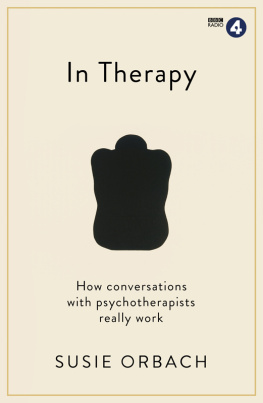Ariane Sherine is a comedy writer and journalist. Her work has appeared in, among others, the Guardian, the Sunday Times, the Observer and the Independent, and she has worked as a scriptwriter for the BBC, Channel 4 and ITV. She loves writing, photography, illustration, video editing and jewellery designing, and is happiest when sitting in her garden on a sunlit day with her daughter, Lily. She is @arianesherine on Twitter and Instagram, and you can support her on Patreon here: www.patreon.com/arianesherine
Praise for Talk Yourself Better
Brilliant makes a baffling world comprehensible
Jeremy Vine
What an excellent, long-overdue idea! A super-accessible guide through the bewildering marketplace of modern therapy to ease our noble search for help
Derren Brown
How do we cope with this brutal world? In this witty, revealing book, Ariane Sherine runs through the ways. An excellent, funny and thought-provoking read for all who seek answers
Arthur Smith
What makes Ariane Sherines Talk Yourself Better stand out from the crowd is its accessibility and humour; to be able to discuss difficult things with a lightness of touch and a comedy that does not trivialise is a rare skill indeed. This combined with the honest and often deeply moving stories of clients and practitioners alike make this the ideal introduction for anyone considering therapy for the first time
Brian Bilston

ROBINSON
First published in Great Britain in 2018 by Robinson
Copyright Ariane Sherine, 2018
The moral right of the author has been asserted.
All rights reserved.
No part of this publication may be reproduced, stored in a retrieval system, or transmitted, in any form, or by any means, without the prior permission in writing of the publisher, nor be otherwise circulated in any form of binding or cover other than that in which it is published and without a similar condition including this condition being imposed on the subsequent purchaser.
A CIP catalogue record for this book is available from the British Library
ISBN: 978-1-47214-132-3
Robinson
An imprint of
Little, Brown Book Group
Carmelite House
50 Victoria Embankment
London EC4Y 0DZ
An Hachette UK Company
www.hachette.co.uk
www.littlebrown.co.uk
NOTE: The information in this book is for guidance purposes only and is not intended to replace any advice given to you by your GP or other health professional. All matters regarding your health should be discussed with your GP. The author and publisher disclaim any liability directly or indirectly from the use of the material in this book by any person.
For everyone struggling with mental illness.
I know how tough it can be. I hope this book helps.
And for my darling Lily, whose life I hope
will be easier than mine.
Contents
Welcome to Talk Yourself Better. Youre probably reading this because youre wondering whether to have therapy. Maybe you have depression or anxiety like me I would happily kick mental illness in the balls for all the years of my life its destroyed. Or perhaps you have a different issue or problem, and are considering seeing a counsellor about it.
Weve all watched films and telly programmes featuring therapists, such as The Sopranos but whats the best way to access therapy in real life if youre not a Mafia boss? Whats the difference between therapy and counselling, or CBT and psychoanalysis? And why pay a stranger to listen to you in the first place? Cant a good friend provide a shoulder to cry on?
All these questions and more are answered in this book. Theres a short guide to therapy, which will cover all the big questions. The rest of the chapters each feature a light-hearted Q&A about a different therapeutic approach; a serious interview with a therapist from that modality (fancy word for type of therapy) so you can decide whether its for you; and an interview (or first-person piece) with a client who has experienced that type of therapy.
Ive also interviewed some people you might have heard of, such as Stephen Fry, Charlie Brooker, David Baddiel, Dolly Alderton, Musa Okwonga, Cosmo Landesman, John Crace and James Brown (the magazine editor, not the Godfather of Soul) about their experiences with mental health and therapy because celebrities can experience mental illness and addiction too.
If youd like to email me to ask about anything, Im at ariane..
Wishing you much happiness and peace of mind, Ariane x
What the hell is therapy, then?
At a basic level, therapy is airing your problems in the presence of another human being, who is effectively a stranger. Youve usually never met them before you step into the therapy room, and after you finish therapy you generally never see them again (unless you bump into them in the supermarket, and then it might be a bit awkward, especially if you accidentally smash their eggs).
What kind of person are they? Im guessing they eat eggs.
You probably wont be able to find out much about them, because therapy works best when you arent aware of their history or views. For example, if you knew that they were infertile and that it caused them sadness, you might feel that you couldnt talk about how much you loved or disliked your kids, because bringing up the subject of children might upset them.
On a different level, if you knew that they were, for example, a Conservative, or went to church every Sunday, you might feel that you couldnt yell Fuck God and fuck the Tories!
To be honest, I dont really want to fuck either. I cant imagine theyd be that good in bed.
Never know till you try... But whatever your beliefs, the idea is that youre able to talk to your therapist about anything thats troubling you, whether thats a bad relationship or the state of the world today, without worrying about what theyre thinking and feeling.
But what if they hate me?
Therapy training is all about being non-judgemental, and therapy is about talking freely. Your therapist gets paid to listen to you rant about anything thats on your mind, whether thats your profuse embarrassment about getting erections on the bus, or your secret fear that the FBI are tapping your phone.
And then what? Do they laugh at you?
No, they try to help you. Depending on the type of therapy, they either ask questions to enable you to find your own answers to your problems, or they help you to think your way out of irrationality.
If youre really crazy, will they report you?
No. My therapist hasnt reported me to my doctor for being paranoid and believing our sessions are being monitored by spies, which is pretty much as crazy as it gets. Therapists only report you if they think youre seriously intending to harm yourself or others.
Whats to stop any old chancer from setting up as a therapist? Seems like a racket: you just sit, pretend to listen, then take the persons money.
Nothing really, though Im not sure fake therapy happens often. But thats why you should always go through the registered therapy bodies such as the BACP (British Association for Counselling and Psychotherapy) and UKCP (UK Council for Psychotherapy) to find a therapist (see for details).
Does therapy actually work, even if it isnt fake?
It genuinely can do. When it works, its brilliant and makes you feel as though anything is possible. It can help you overcome phobias and addictions, let go of the things that are bothering you, and gain clarity on troubling issues. When it doesnt work, it can leave you feeling despondent.
Next page
